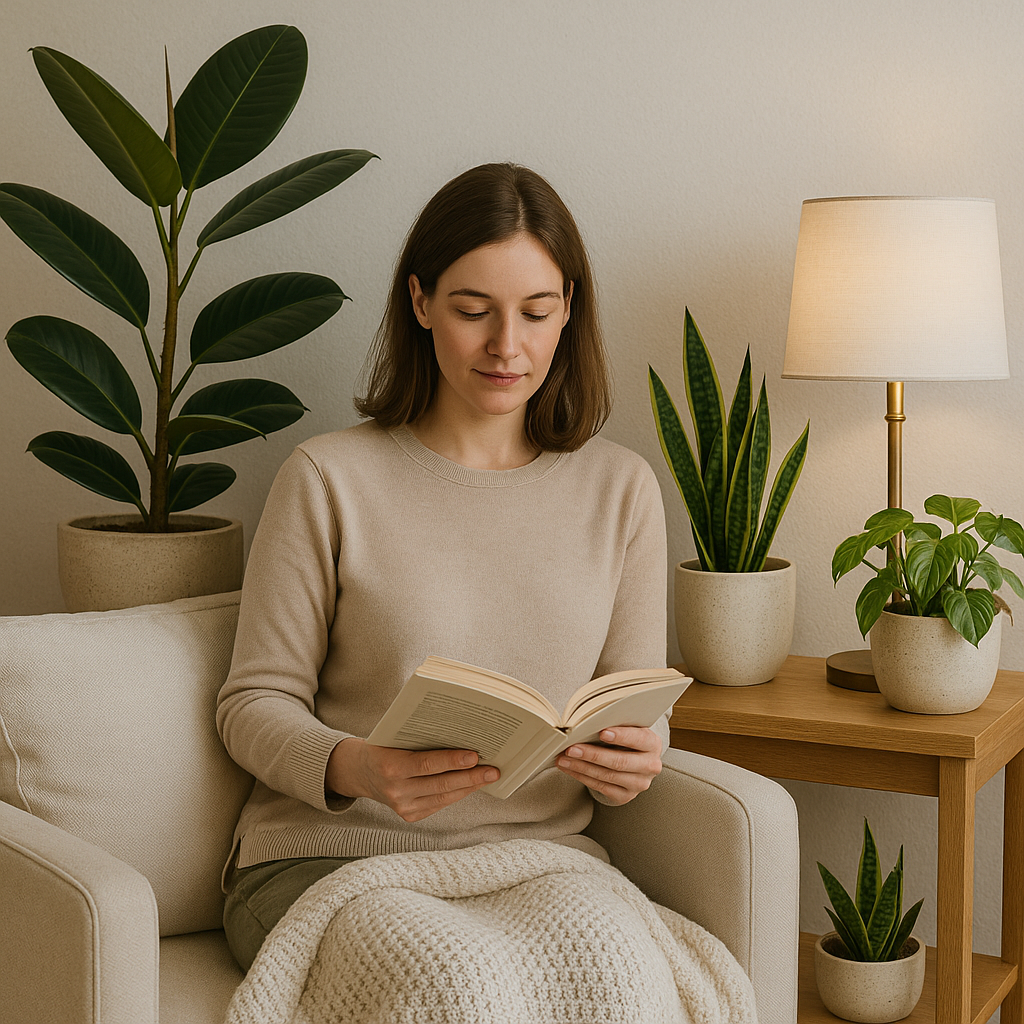Living in a small apartment often comes with trade-offs: limited space, reduced natural light, and fewer opportunities for outdoor connection. But there’s a simple, powerful way to transform your living space into a more vibrant, calming, and even healthier environment—indoor plants.
Far beyond decoration, houseplants offer numerous mental, physical, and emotional benefits. In this article, you’ll discover the many advantages of having indoor plants in a small apartment and how these green companions can improve your quality of life.
1. Plants Improve Air Quality
One of the most talked-about benefits of indoor plants is their ability to purify the air. Through a process known as phytoremediation, certain plants absorb toxins and pollutants through their leaves and roots, filtering the air inside your apartment.
Common indoor air pollutants like formaldehyde, benzene, and carbon monoxide can be reduced by plants such as:
- Peace Lily
- Spider Plant
- Snake Plant
- English Ivy
These plants are particularly helpful in apartments where airflow might be limited due to closed windows or air conditioning.
Added Bonus: Higher Humidity
Plants naturally release moisture through transpiration, which increases humidity—a helpful benefit in dry apartments or during the winter heating season. This can ease dry skin, reduce respiratory irritation, and even help prevent static electricity buildup.
2. They Reduce Stress and Boost Mood
Studies have shown that simply being around plants can help reduce stress levels, anxiety, and symptoms of depression. The presence of greenery creates a connection with nature, which can help calm the nervous system and boost overall well-being.
Tending to your plants—watering, pruning, or even just observing new growth—can serve as a daily ritual of mindfulness. These quiet moments can be therapeutic, offering a sense of accomplishment and peacefulness, especially in urban environments.
The Science Behind It
A 2015 study published in the Journal of Physiological Anthropology found that interacting with indoor plants can reduce physiological and psychological stress by lowering heart rate and blood pressure.
3. Plants Improve Focus and Productivity
If you work or study from home, adding plants to your apartment can enhance your mental performance. Exposure to greenery has been linked to increased concentration, memory retention, and creativity.
Consider placing small plants on your desk or near your workstation. Even a single potted succulent can provide enough visual stimulation to keep your mind alert and engaged.
Best plants for home offices or study areas:
- ZZ Plant
- Aloe Vera
- Philodendron
- Cactus
4. They Elevate Your Interior Design
In a small apartment, every design choice matters. Indoor plants are incredibly versatile design elements that can:
- Soften harsh lines or cold materials like metal and glass
- Fill empty corners or awkward spaces
- Add height and structure to your layout
- Introduce color, texture, and life
Whether your decor style is modern, boho, minimalist, or rustic, there’s a plant that will complement it. You can go bold with a statement plant like a fiddle leaf fig, or subtle with trailing vines like pothos.
Create Style with Function
You can use hanging plants to visually raise the ceiling or place tall plants in corners to frame the room. With thoughtful placement, plants don’t just beautify—they enhance spatial harmony.
5. Plants Can Be Low-Maintenance Companions
Unlike pets, plants don’t require walking, bathing, or feeding multiple times a day. For people who want companionship or something to nurture—but with less commitment—plants are the perfect solution.
Low-maintenance options include:
- Snake Plant
- ZZ Plant
- Pothos
- Succulents
These resilient species are great for beginners or people with busy routines. Just a little attention each week keeps them happy and healthy.
6. They Provide a Connection to Nature
In dense urban areas where access to green spaces may be limited, bringing nature indoors helps maintain a sense of connection to the natural world. This connection is especially important for mental health, particularly for those who spend long hours indoors.
Watching your plants grow, unfurl new leaves, or bloom offers a tangible reminder of life’s cycles—something that many city dwellers find grounding and fulfilling.
7. Plants Can Improve Sleep Quality
Certain indoor plants, like lavender, jasmine, and snake plants, can help improve sleep quality by creating a relaxing environment and releasing oxygen at night.
Place these in your bedroom to create a peaceful, sleep-friendly atmosphere. Their soothing scent or air-purifying effects may help you unwind more easily after a long day.
8. They Encourage Responsibility and Routine
Taking care of plants instills a sense of responsibility and encourages the creation of daily or weekly routines—an especially helpful habit for people who live alone or work from home.
Checking on your plants in the morning or watering them on weekends becomes part of a healthy, grounding ritual. And when you see them thrive under your care, the reward is tangible.
Final Thought: More Than Just Decor
Indoor plants bring beauty to any apartment—but their benefits go far beyond appearance. They purify your air, lift your mood, sharpen your focus, and even improve your health. In small apartments where every item must earn its place, plants deliver immense value in a compact, green package.
Whether you start with one succulent or fill your space with trailing vines and tropical leaves, introducing houseplants into your apartment is a simple, rewarding way to enrich your daily life. Start small, choose plants that match your lifestyle, and watch how your space—and your well-being—blossom.
